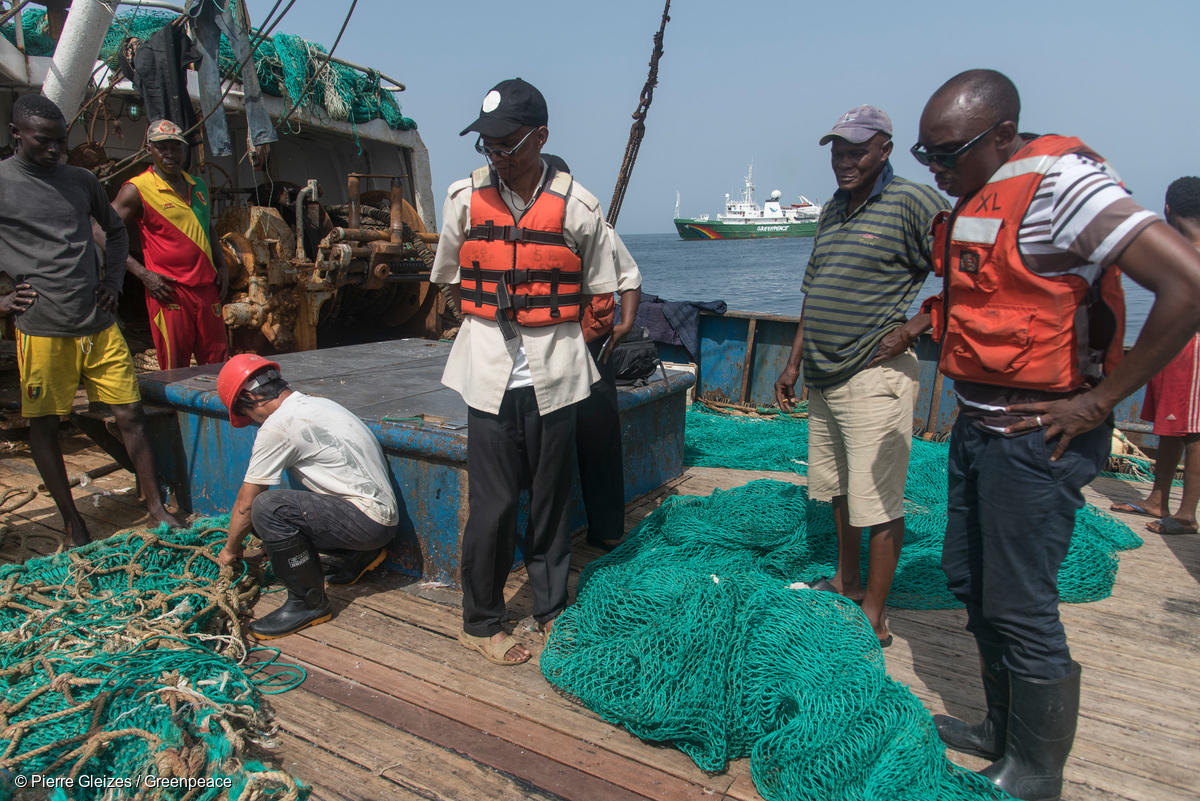China’s Huge Fishing Fleet Casts Nets Around Globe
ADF STAFF
Having overfished its own waters, China is sending its heavily subsidized industrial and semi-industrial trawlers to fisheries near Africa, Australia, Indonesia, the Korean peninsula, the Philippines and South America.
In these places, Chinese ships frequently sail into exclusive economic zones, illegally catch tons of fish meant for local consumption and damage the ecosystems that help fish survive.
In the Indo-Pacific region, for example, China is responsible for 95% of all illegal fishing. This year, leaders from Australia, India, Japan and the United States launched an initiative aimed at curbing China’s illegal fishing in the region. The plan is to use satellite technology to develop a tracking system for vessels suspected of illegal fishing.
“China has become the world’s largest perpetrator of illegal fishing,” Charles Edel, Australia chair of the Center for Strategic and International Studies, told the Financial Times. “They have drastically depleted global fish stocks and undermined traditional livelihoods of many countries, so any steps taken to track, identify and curb such activity would have environmental and security benefits for the region.”
China commands the world’s largest distant-water fishing fleet and is the world’s worst illegal, unreported and unregulated (IUU) fishing offender, according to the IUU Fishing Index. Of the top 10 companies engaged in illegal fishing globally, eight are from China.
Near the Galápagos Islands, off the coast of Ecuador, almost 300 Chinese trawlers were counted fishing, accounting for 99% of the fishing near the islands, the conservation group Oceana reported in 2020.
“Our sea can’t handle this pressure anymore,” Alberto Andrade, a fisherman from the Galápagos Islands, told the The New York Times. “The industrial fleets are razing the stocks, and we are afraid that in the future there will be no more fishery. Not even the pandemic stopped them.”
Andrade’s fears are well founded, as nearly 90% of the world’s marine fish stocks now are fully exploited, overexploited or depleted.
Targeting Africa
Illegal fishing is driving fish stocks in parts of Africa to the brink of collapse.
In Ghana, for example, small pelagic fish populations, such as sardinella, have dropped 80% in the past two decades. One species, sardinella aurita, is fully collapsed, according to the Environmental Justice Foundation.
A 2022 report by the Financial Transparency Coalition found that nearly half of the world’s industrial and semi-industrial trawlers involved in illegal fishing operate in Africa. West Africa, the world’s epicenter for IUU fishing, attracts 40% of the world’s illegal trawlers. IUU fishing costs the continent up to $11.49 billion annually.
The majority of illegal fishing vessels in Africa are Chinese, but it’s not always easy to identify a vessel’s beneficial owner.
In Ghana, 90% of registered fishing vessels are Ghanaian on paper, but actually are owned by Chinese companies.
That is a process known as “flagging in,” meaning that foreign companies use and abuse local rules to flag a foreign-owned and operated fishing vessel into an African registry and fish in local waters. It helps a vessel’s owners dodge financial charges and other regulations. There is little oversight of the online open registries.


Comments are closed.